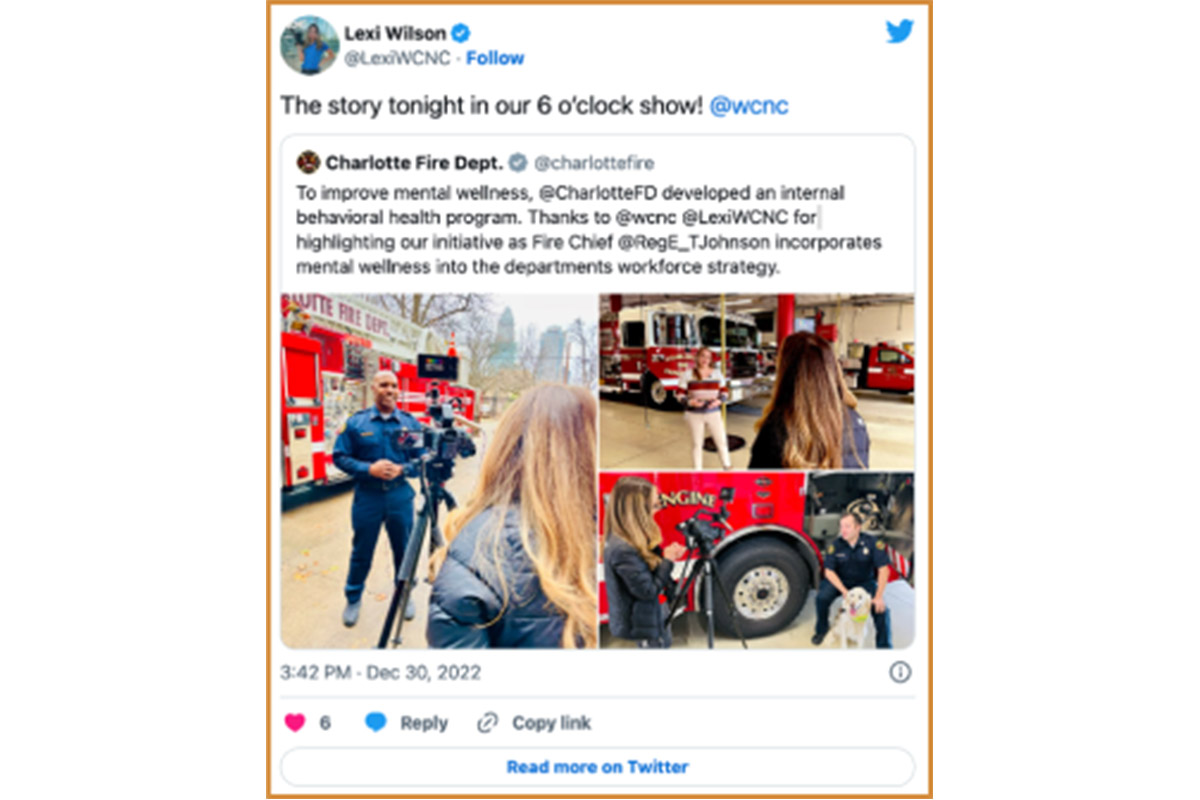About our research
Overview
Creation and Implementation
Research and Implications
Our survey findings have led to significant organizational changes in multiple departments:
Budget Justifications
Budget justifications for a Mental Health Coordinator
Contract enhancements
Contract enhancements for behavioral services at a Public Safety Occupational Health Clinic
Changes to operations
Changes to operations that affect sleep and emergency alarms for firefighters
Therapy dogs
Addition of therapy dogs and expanded teams for peer support within the department
Peer-support
Peer-support personnel visited every fire station/department to provide information on the fire departments’ mental health resources
News & Media Coverage

Data CollectionThe online survey will be deployed at two points in time (with different content at each time point. Separate surveys help to control for potentially spurious effects and allow us to limit survey fatigue by keeping each survey relatively short (about 15 minutes). Survey 1 and 2 will be approximately four weeks apart. Overall, our main goals include:
1.
Secure a random sample size large enough to assess leadership and culture variance at the station, department, and country levels
2.
Author, deliver, and present rigorous reports of results to participating departments (which helps incentivize participation), and develop journal manuscripts for peer review and present at academic conferences
